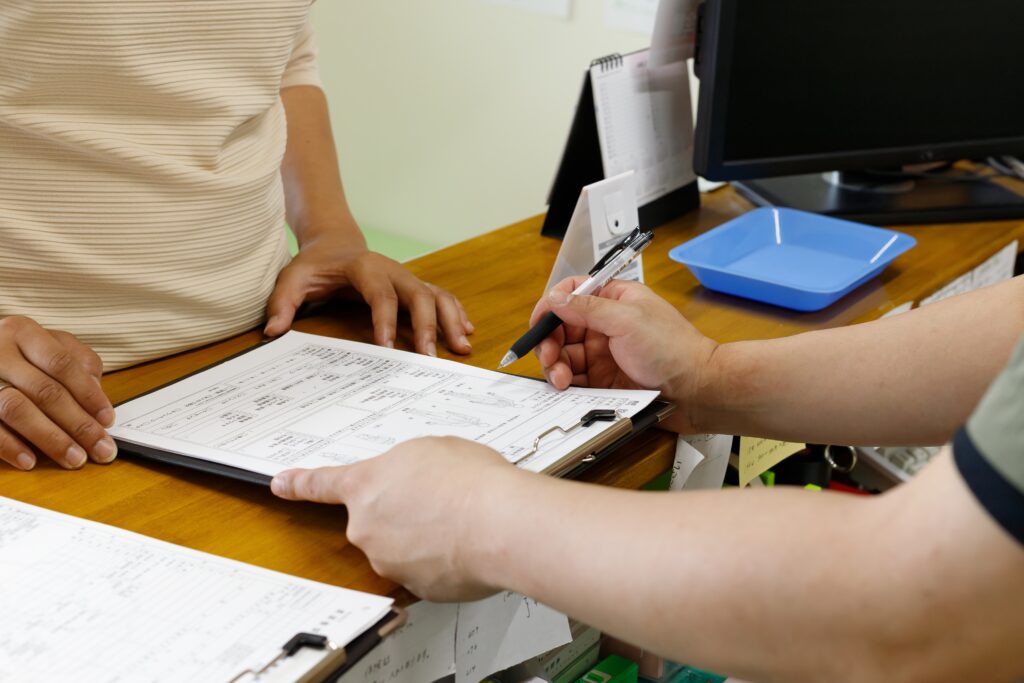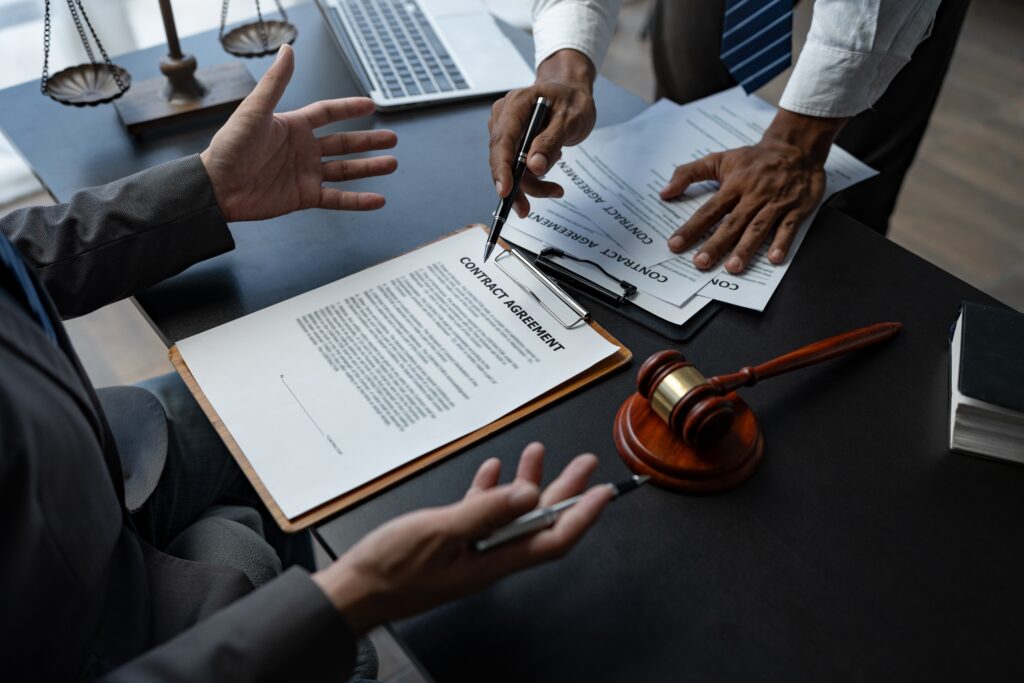When you've suffered an injury due to someone else's negligence, finding the right legal representation can make a significant difference in the outcome of your case. A skilled personal injury attorney can guide you while you navigate the legal process, negotiate with insurance companies, and fight for your deserved compensation. But with so many attorneys, how do you find the best Waukegan personal injury attorney near you?
Waukegan Personal Injury Guide
Starting Your Search for a Personal Injury Lawyer
Now that you understand why you must find the right personal injury lawyer let's discuss how to begin your search. The first step is to compile a list of potential attorneys in your area. There are several ways to do this, including seeking personal recommendations, contacting your local bar association, using online directories, conducting internet searches, and contacting legal aid organizations.

Personal recommendations can provide valuable insights into an attorney's communication style, work ethic, and effectiveness. Your local bar association may offer referral services that can match you with attorneys based on your specific needs.
Online directories often include client reviews, peer ratings, and detailed information about attorneys' practice areas and experience. A simple internet search for "personal injury lawyer near me" will yield a list of local attorneys and law firms focusing on personal injury cases. If you have limited financial resources, legal aid organizations in your area can provide free or low-cost legal services or refer you to attorneys who offer pro bono work.
As you compile your list, focus on attorneys primarily handling personal injury cases. While general practice lawyers may be capable of handling your case, those who dedicate their practice to personal injury law are likely to have more extensive experience and knowledge in this specific area. This specialized experience can make a significant difference in understanding complex legal issues, negotiating with insurance companies, and advocating effectively on your behalf throughout the entire legal process.
Evaluating Potential Personal Injury Lawyers
Once you have a list of potential personal injury lawyers, then evaluate them to determine which ones are best suited to handle your case. Several factors to consider during your evaluation process include experience and track record, resources and support staff, communication skills, reputation and professional standing, fee structure, availability and accessibility, trial experience, and personal compatibility.
Look for attorneys with a proven track record of success in personal injury cases. Consider how long they've been practicing law and how many cases similar to yours they've handled. An attorney with extensive experience in personal injury law is more likely to anticipate challenges and develop effective strategies for your case.
Personal injury cases often require significant resources to investigate, gather evidence, and build a strong case. Consider whether the attorney or law firm has the necessary resources and support staff to handle your case effectively. This may include paralegals, investigators, and medical consultants.
Research the attorney's reputation within the legal community and among past clients. Look for client testimonials, peer reviews, and professional awards or recognitions. Check with your state bar association to ensure the attorney is in good standing and has no history of disciplinary actions.
Most personal injury attorneys operate on a contingency fee, meaning they only get compensated if you win your case. Discuss the fee structure upfront and ensure you understand all potential costs associated with your case.
Consider how accessible the attorney is and whether they have the time to dedicate to your case. A lawyer with a heavy caseload cannot give your case the attention it deserves. Ask about their typical response time to client inquiries and how often they provide case updates.
You'll work closely with your personal injury attorney throughout your case, which can take months or even years to resolve. This collaboration involves discussing legal strategies, providing updates on your medical treatment, and navigating the complexities of the legal system together. Choosing someone you feel comfortable with and trust to represent your interests is important for maintaining clear communication, managing expectations, and ensuring they actively protect your legal rights at every step.
Conducting Initial Consultations
After narrowing down your list based on the above criteria, the next step is to schedule initial consultations with your top choices. Many personal injury attorneys offer free initial consultations, allowing you to discuss your case and assess whether the attorney fits your needs.

During these consultations, be prepared to provide a detailed account of your injury and its circumstances. Bring any relevant documents, such as medical records, police reports, or correspondence with insurance companies. This information will help the attorney evaluate the strength of your case and provide more accurate advice.
Use this time to ask questions about the attorney's experience, approach to cases like yours, and how they will handle your situation. Pay attention to how well the attorney listens to you and whether they provide clear, understandable answers to your questions.
Don't be afraid to discuss fees and costs during the initial consultation. Ensure you understand how the attorney charges for their services and what expenses you may be responsible for throughout the case.
Take notes during each consultation and trust your instincts. If you feel uncomfortable or unsure about an attorney, it's okay to continue your search. Remember, you're not obligated to hire an attorney just because you've had an initial consultation.
Making Your Decision
After completing your consultations, take some time to review your notes and reflect on your interactions with each attorney. Consider the lawyer that made you feel most comfortable, demonstrated the most relevant experience, and seemed most capable of handling your case effectively.
Don't hesitate to follow up with attorneys if you have additional questions or need clarification on any points discussed during the consultation. A good personal injury lawyer will happily address your concerns and provide the information you need to make an informed decision.
Once you've chosen, inform the attorney and discuss the next steps. This typically involves signing a retainer agreement, which outlines the terms of your relationship and the attorney's responsibilities in handling your case.
Remember that choosing a personal injury lawyer is an important decision that can significantly impact the outcome of your case. Review your options thoroughly to ensure you find the best attorney for your specific needs.
Working with Your Chosen Personal Injury Lawyer
After selecting your personal injury lawyer, it's important to establish a strong working relationship. Open and honest communication is key to a successful attorney-client partnership. Be prepared to share all relevant information about your case, even if you think it might be detrimental. Your lawyer needs to know all the facts to represent you effectively.
Keep your attorney informed of any changes in your medical condition or treatment. Attend all medical appointments and follow your doctor's recommendations. This supports your recovery and strengthens your case by demonstrating the impact of your injuries.
Be patient with the legal process. Personal injury cases can take time to resolve, especially if they involve serious injuries or complex liability issues. Your attorney should keep you informed about the progress of your case, but don't hesitate to ask for updates if you're unsure about what's happening.
Trust your attorney's judgment, but don't be afraid to ask questions if you don't understand something or have concerns about the direction of your case. A good personal injury lawyer will take the time to explain their strategies and decisions, ensuring that you feel comfortable with how your case is progressing.
The Importance of Timely Action
It's worth noting that time is often of the essence in personal injury cases. Most states have statutes of limitations that set deadlines for filing personal injury lawsuits. You may lose your right to seek compensation if you miss these deadlines.

These time limits can vary depending on the type of injury and the circumstances of the incident. For example, the statute of limitations for a car accident injury might differ from that of a medical malpractice case. Some states allow as little as one year to file a claim, while others may provide up to six years. However, it's important to remember that these are maximum time limits, and waiting until the last minute is rarely advisable.
Additionally, the sooner you begin working with a personal injury lawyer, the better. Evidence can disappear or degrade over time, witnesses' memories can fade, and important documents may be lost or destroyed. By hiring an attorney early in the process, you ensure they can gather and preserve evidence immediately, strengthening your case from the outset.
For instance, someone can quickly clean up or alter physical evidence at the scene of an accident. Skid marks on a road might wash away in the rain, or a faulty piece of equipment might be repaired or replaced. Surveillance footage that may have captured the incident can be lost if not promptly requested. Even seemingly minor details, like the exact condition of a sidewalk where a slip and fall occurred, can change over time due to weather or repairs.
Witness testimony is another important element that benefits from timely action. Human memory is fallible and tends to become less reliable as time passes. Witnesses may forget important details or unconsciously fill in gaps with assumptions or information they've heard from others. By interviewing witnesses soon after the incident, your lawyer can capture their recollections while still fresh and accurate.
Also, prompt legal action can help preserve digital evidence. In our increasingly digital world, relevant evidence might exist in emails, text messages, social media posts, or electronic records. This evidence can be easily deleted intentionally or as part of routine data management practices. A lawyer can take steps to preserve such digital evidence, but only if they're involved early enough in the process.
Timely action is also beneficial when documenting your injuries and their impact on your life. Medical records created shortly after an injury link the incident and your condition. If you wait too long to seek medical attention or legal advice, proving that the incident directly caused your injuries may become more difficult.
Also, hiring a lawyer early allows them to guide you through the process. They can advise you on how to communicate with insurance companies, what to post (or not) on social media, and how to document your injuries and recovery process. This guidance can help to avoid common pitfalls that might weaken your case.
Early involvement of a lawyer can also be advantageous in negotiating with insurance companies. Insurance adjusters often try to settle claims quickly and for as little money as possible. Without legal representation, you can face pressure to accept a settlement that doesn't fully cover your damages. A personal injury lawyer can handle these negotiations, ensuring you don't settle for less than you deserve.
It's also worth considering that some personal injury cases may involve multiple parties or complex liability issues. For example, a car accident might involve the other driver and the vehicle manufacturer if a defect contributed to the crash. Identifying all potentially liable parties and building a case against them takes time and careful investigation. The earlier your lawyer can start this process, the more thorough and effective it's likely to be.
Lastly, while it's true that most personal injury cases settle out of court, some do end up going to trial. If your case needs to go to court, starting the legal process early gives your attorney more time to prepare a strong case. This includes gathering evidence and consulting with expert witnesses, developing legal strategies, and preparing you for what to expect during the trial process.
Don't Wait to Speak to a Personal Injury Lawyer
Don't wait to seek legal representation if you've suffered an injury due to someone else's negligence. Start your search for a personal injury lawyer today. Many attorneys offer free initial consultations, allowing you to discuss your case without financial obligation.
Take the first step towards protecting your rights and securing the compensation you deserve. Remember, time constraints may limit your ability to file your claim, so take action to preserve your legal options.
